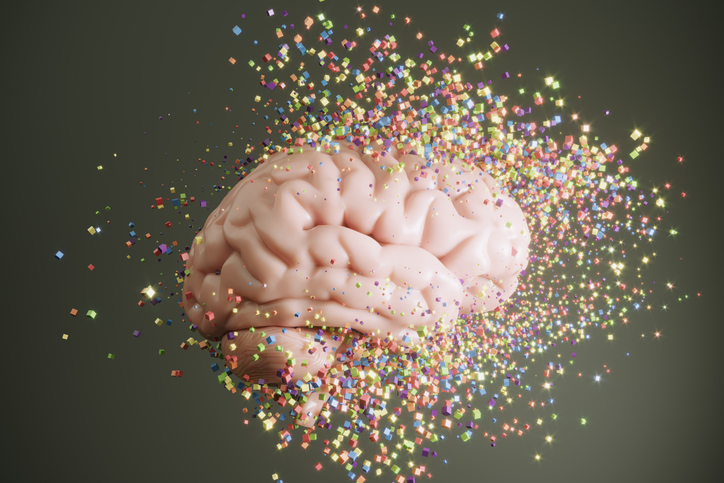
Regenstrief Institute investigator Daniel Bateman, MD, and his colleagues have created a unique mobile health app that has the potential to significantly improve care for patients with Alzheimer’s disease. This app, called Brain CareNotes, aims to provide the patient’s caregiver with immediate symptom management advice and to relay such symptoms to the patient’s healthcare team. Bateman, a geriatric psychiatrist, recently took the time to speak with DocWire News about this innovative new mobile health app and how it could potentially impact dementia care.
Origin of the Brain CareNotes App
Alongside fellow Regenstrief researchers Richard Holden, PhD, and Malaz Boustani, MD, MPH, Bateman began working on this app roughly two years ago to improve Alzheimer’s patient care by reaching more patients and caregivers with the same number of physicians.
“We know that there’s never going to be enough physicians who specialize in geriatric psychiatry, geriatric medicine, or neurology to take care of all of the patients with Alzheimer’s disease], to lend the type of support that these caregivers need,” explained Bateman in a phone interview.
The researchers also wanted to capture specific information addressing the behavioral and psychological symptoms of each patient with a mobile health solution. Bateman added that the app also aims to, “find out what is the right frequency to measure symptoms.”
How Does the App Work?
The mobile app is designed with an interface for healthcare team members on one end and caregivers of the dementia patient on the other. Brain CareNotes allows these two parties to securely message back and forth, prompting the caregiver with questions regarding distress levels and behavioral and psychological symptoms that are troubling the patient. Based upon the caregiver’s responses to these questions, they are prompted with note card recommendations regarding how to best handle the situation or symptoms.
After this assessment is complete, a healthcare team member is notified about the patient’s experience. Specifically, this information is relayed to a team member known as the care coordinator assistant (CCA) in the Sandra Eskenazi Center for Brain Care Innovation at Eskenazi Health. The CCA serves as a bridge between the caregiver and the physician in this process.
“On the health care team member’s side of the app, there is a dashboard that allows for the healthcare team member to review all of their different patients and see who’s had high scores recently in different areas,” Bateman added. “It leverages the idea of population health and improving care and managing a whole population rather than a fee-for-service type model.”
Bateman explained that there are over 200 different note cards with recommendations as to how the caregiver should handle symptoms such as hallucinations and paranoia, offering solutions such as distraction or playing music to reduce symptoms. These suggestions follow an algorithm, with note cards being selected based on the symptoms entered by the caregiver.
Research and Development
Currently, Brain CareNotes is only available for participants in two clinical trials, I-CARE (NIA R21AG062966) and MOMENT (NIA K23AG059914). The latter is short for mobile assessment of behavioral and psychological symptoms of dementia and adults with Alzheimer’s disease and is being led by Bateman and funded through the National Institute on Aging.
“We’re focused on the feasibility and the usability of the app and also focused on what we call episodes of actionable clinical data,” Bateman said regarding the MOMENT trial. “It’s a randomized control trial that’s blinded and we have 77 caregiver-patient dyads in one arm of the study and another 77 in the other arm of the study.”
One of these patient groups will receive the Brain CareNotes app, whereas the other will serve as a control group. In the group receiving the app, Bateman explained that they will be looking to see if the app was burdensome for the caregiver, whether it provides the right amount of information to the health care team and the effects of various measurement frequencies.
“Participants will have alternating frequencies of measurement, either daily, weekly, or monthly,” continued Bateman. “And what we’re looking at in terms of actionable data is how many times is there a report of symptom the health care team member would act upon, with the idea being ‘can we pick up more actionable data?’ And what I mean by actionable data, say a behavioral symptom of severe agitation and the healthcare team’s made aware of that and then they, as a result, order a urinalysis and some basic blood work and find that the person has a urinary tract infection. Well, that would have been what we would consider actionable data. It’s data that the healthcare team makes a decision upon that requires clinical input.”
Being that this trial is on the smaller side, Bateman’s goal is to conduct a larger trial that will identify whether the app changes health outcomes in terms of emergency department visits, inpatient stays, symptom reduction, and other real-world metrics. An award funding this study was granted this past August by the National Institute on Aging Career Development and Bateman claimed that participant recruitment will begin this December.
The I-CARE trial, led by Dr. Holden and Malaz Boustani, MD, a fellow research scientist at Regenstrief’s Center for Aging Research, is a trial evaluating Brain CareNotes with a different focus. Holden and Boustani are emphasizing the caregiver’s response to the cards and the health care team’s performance with the app in this study. The MOMENT trial differs in that the emphasis is placed on what frequency of assessment is best fit for each type of caregiver or patient.
“We’re really trying to tailor care to the caregiver and patient with dementia’s needs,” Bateman explained.
What the Future Holds
Bateman hopes to have a commercial form of the app available to the public after these trials are conducted. Being that the I-CARE and MOMENT studies were smaller in scale, the next step will be a larger R01 study that will assess a version of the app updated based on the findings of these current studies.
Regenstrief Institute is at the forefront of the digital health movement, with several projects underway utilizing similar mobile health solutions. Holden is involved with the research and development of another smartphone app designed to help patients with Alzheimer’s disease known as Brain Safe. The primary goal of the app is to make older patients aware of the medications that may be contributing to dementia-related cognitive decline. Click here for DocWire News’ exclusive interview with Dr. Holden regarding his work with the Brain Safe App.
Despite the rapid increase in mobile health and artificial intelligence solutions for patients on the market, Bateman still feels that the physician will always play an essential role in the medical process.
“There’s a lot of exciting stuff that’s going on with artificial intelligence and with avatars in particular, avatars that would be able to support people with dementia through a tablet-like device where they could interact or talk with the person. But we’re still pretty far away from that being truly autonomous. Really there needs to be someone, a human on the back-end kind of monitoring it,” he concluded.
“Healthcare is moving mobile.” Learn how Regenstrief Institute and @IUMedSchool researcher @dan_bateman_md is utilizing a mobile #app to improve care for people with #alzheimers. https://t.co/Lv2ZENzZfh pic.twitter.com/yWUJjHThAr
— Regenstrief Institute, Inc. (@Regenstrief) October 1, 2019







 © 2025 Mashup Media, LLC, a Formedics Property. All Rights Reserved.
© 2025 Mashup Media, LLC, a Formedics Property. All Rights Reserved.